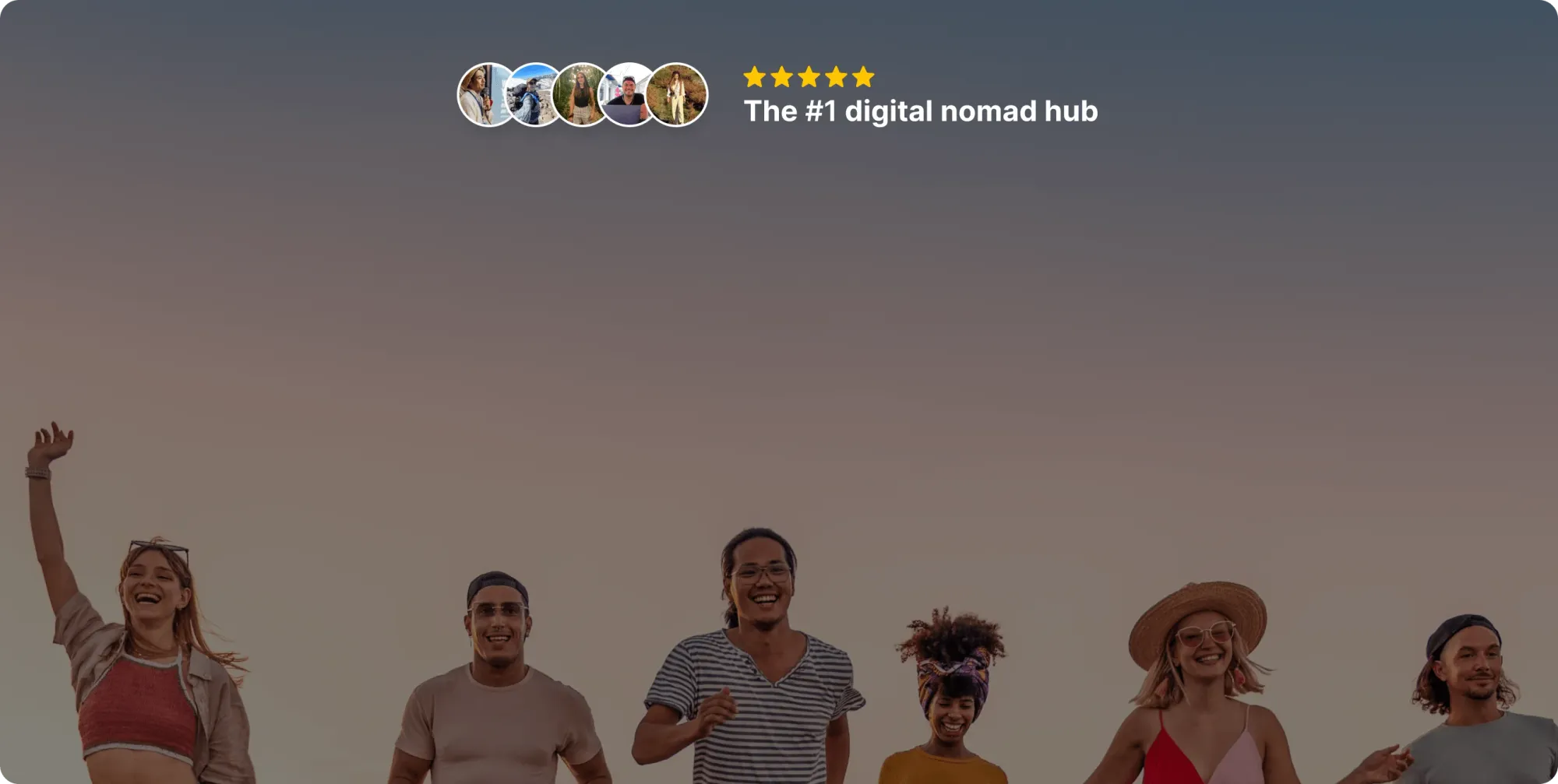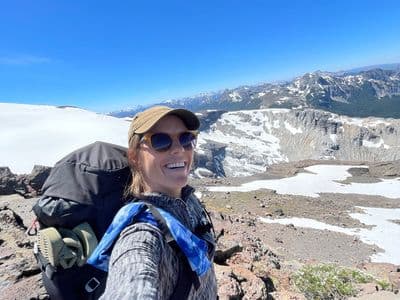How To Land Remote Jobs With No Experience
Learn how to land your first remote job with no experience using this proven 5-step process from a real digital nomad.


I used to stare at remote job listings with that sinking feeling. "3+ years of experience required."
The classic catch-22: needed experience to get a job, but needed a job to get experience.
Today, I'm a Senior Content Writer at Semrush and a LinkedIn Top Voice for Remote work. Working 100% remotely.
My journey wasn't easy, but it proved that landing a remote job without experience is absolutely achievable.
Through trial and error, I developed a methodology that worked.
Here is my 5-step process for landing remote work with zero traditional experience.
Step 1. Identify What You Bring to the Table
When I first tried to break into remote work, I made a critical mistake: I was too general.
In interviews, I'd awkwardly stumble when asked about my specific skills or what role I was looking for. "I'm a quick learner and can do many things" isn't compelling when employers need someone to solve specific problems.
The breakthrough came when I stopped thinking in terms of "no experience" and started focusing on "different experience."
We all have transferable skills from school, hobbies, volunteer work, or previous jobs that apply to remote positions.
Try this exercise that changed my approach: Create a two-column inventory.
In the left column, list every skill you possess (communication, organization, specific software knowledge).
In the right column, match each skill to remote jobs that value it.
For example, my writing skills from blogging paired naturally with content roles, while my attention to detail matched with quality assurance positions.
The most counterintuitive advice I can give you? Narrow down instead of broadening out.
When I started focusing specifically on content writing rather than "any remote job," my applications became more focused, my language more confident, and employers could actually visualize me in the role.
Employers hire problem-solvers.
Your job isn't to convince someone to take a chance on you—it's to show them how your unique background has prepared you to solve their specific challenges.
Step 2. Gain Experience Through Small Wins
A powerful realization in my remote work journey was understanding that I didn't need permission to gain experience.
Instead of waiting for someone to hire me, I had to create opportunities myself. And you should, too.
When I wanted to break into content writing but had zero published articles, I started a Medium blog.
This wasn't just about having samples. It was about developing my voice and building confidence in my abilities.
Those early posts became my portfolio when employers asked for writing samples.
Another great way to gain experience is through volunteering. I volunteered to help a friend's NGO with their SEO. They needed content optimization but couldn't afford an agency.
I spent evenings learning SEO fundamentals and applying them to their website.
This experience taught me two critical skills: how to work independently and how to communicate progress without in-person meetings.
Freelancing, unexpectedly, became my secret weapon. I say that unexpectedly because I really dislike freelancing.
But I actually landed my first remote gig freelancing for a Canadian SEO agency, Kogneta. And it was an amazing learning experience!
Each one of these small projects helped me build my credibility incrementally.
Plus, these small wins served multiple purposes: they built my confidence, created tangible work samples, and most importantly, taught me the self-discipline remote work demands.
When interviewers later asked about my remote work experience, I could honestly discuss how I managed deadlines and communication across these projects.
My point is: Don't underestimate the legitimacy of small side projects.
My Medium blog eventually led to a paid freelance opportunity when a reader reached out, impressed by my prose.
That single connection opened doors I couldn't have accessed through job boards alone.
Step 3: Create a Personal Brand and Build an Online Presence
The single most important factor in my remote work success wasn't my resume. It was building a personal brand online.
This opened doors I didn't even know existed.
When I first started, I thought I needed an elaborate website and the perfect portfolio.
I was wrong.
What really worked was consistently sharing my journey and helping others along the way.
I began documenting my learning process publicly.
Every time I learned something new about SEO or content marketing, I'd write about it on LinkedIn or Twitter (now X).
I wasn't positioning myself as an expert. Just someone openly sharing what they were discovering and trying to help others do the same.
This vulnerability was magnetic.
People appreciated my honesty and started engaging with my posts. I'd answer questions, provide resources, and build relationships without expecting anything in return.
The goal is not to impress potential employers. Focus instead on being genuinely helpful.
My last two remote positions came without me even applying.
For my current role, the company actually reached out to me because they had been following my content online.
You don't need a fancy website. I still don't have one, despite what everyone told me.
A simple Linktree with links to your work is perfectly fine. Trust me.
What matters is having something to show, whether it's a Notion portfolio, a GitHub repository, or even a Google Doc with case studies.
All of this will give you access to what I call the "hidden job market."
When you create an online brand and help others, you bypass traditional application processes entirely. People start recommending you for positions before they're even posted.
Authenticity trumps perfection.
Share what you're learning, talk about your failures, and celebrate your wins.
Your personal brand should be about showing your growth journey and connecting with others on the same path.
Step 4: Search Smartly and Leverage Connections
People waste countless hours scrolling through generic job boards, applying to dozens of positions that aren’t accepting candidates anymore, aren’t really remote, and never respond.
I know because I've been there.
My breakthrough came when I realized that quality platforms matter more than the quantity of applications.
I actually landed my first two remote roles through AngelList (now WellFound), which focuses on startup opportunities.
These companies are often more flexible about formal experience and value initiative over perfect resumes.
Here's what I’ve learned after years of trial and error:
Most job boards just scrape the same listings from across the web. They're not actually curating quality opportunities.
Instead, focus on platforms run by real people who care about matching candidates with the right roles.
Some of my favorite remote job board sites include NoDesk, WeWorkRemotely, Remote Nomad Jobs, and Daily Remote.
Beyond job boards, I've found incredible value in genuine networking. Not the forced kind, but the organic connections that form when you're consistently showing up and helping others.
I also made it a habit to engage meaningfully with content from companies I admired.
Not just liking posts, but adding thoughtful comments that demonstrated my knowledge. This put me on the radar of decision-makers without ever sending a resume.
Then, when I did apply for roles, having these connections made all the difference.
For example, my application for Chili Piper got fast-tracked because I “knew” Chelsea from Twitter.
My advice: stop spending hours submitting applications.
Be strategic about where you spend your energy. Choose a few quality platforms, build relationships in relevant communities, and make yourself findable by the people who matter.
Step 5. Nail the Application and Interview Process
When you lack traditional experience, how you present yourself becomes even more critical.
I learned this the hard way through countless applications before refining my approach.
The most successful remote job hunters send fewer, better applications.
I used to blast out dozens of generic applications weekly with zero results. Everything changed when I started applying to just 3-5 positions weekly with deep customization.
For each application, I'd research the company thoroughly, reading their blog posts, following their social media, and understanding their values.
Then, I'd customize my CV and cover letter to speak directly to their needs using their language.
Here's what worked for me:
I'd find the exact phrases they used in job descriptions and weave them naturally into my application. When a listing mentioned "data-driven content creation," I made sure to highlight my experience tracking blog performance metrics from my side projects.
And make sure to show up well-prepared for interviews.
Feed ChatGPT your CV and the job requirements, then ask it for potential interview questions.
This preparation technique can save you tons of embarrassment. Trust me. I’ve bombed more interviews than you can imagine.
Practice your answers out loud, focusing especially on that dreaded question:
"But you don't have experience?"
My winning response became:
"While I haven't held this exact role before, my experience creating SEO content for [friend's NGO] demonstrated my ability to research complex topics and deliver high-quality work independently. I've also been documenting my learning journey, which shows my commitment to this field and ability to grow quickly."
Then, following up after interviews was my secret weapon.
I actually landed my role at Kogneta because I followed up.
I learned years later from Jordan, the managing partner, that my thoughtful email thanking him for the interview and reiterating my interest made all the difference.
When facing rejection (and you will), don't take it personally. Use it as data.
After each interview, I'd reflect on what questions tripped me up and improve my response for next time. This iterative approach eventually led to success.
Remember, for remote roles, employers are looking for excellent communication, self-discipline, and proactiveness. All qualities you can demonstrate throughout the application and interview process itself.
Real-World Remote Jobs for Beginners
Through my journey helping and mentoring others, I've found these roles consistently open to newcomers:
- Content Writer/Copywriter: How I got my start. Entry-level writers earn around $50,000 annually. My strategy: Start with a Medium blog to create samples, then pitch for small paid gigs. Companies value your voice and research skills more than formal experience.
- Virtual Assistant: Perfect for organized people. Duties include email management, scheduling, and basic admin tasks. Starting rates: $15-25/hour. The skills you gain transfer directly to operations and project management roles later.
- Customer Service/Support: My reliable backup plan. Companies like Delta and Marriott routinely train people with zero experience. Starting salaries: $23,000-$40,000. Good communicators can advance to customer success management, often doubling their income.
- Data Entry Clerk: Abundant opportunities requiring just attention to detail and basic computer skills. Typical pay: $30,000-$50,000. Great pathway into data analysis or administrative careers.
Remember to view these roles as starting points, not destinations.
The goal is getting your foot in the door of remote work, then building experience that opens even better opportunities.
Next Steps
The journey to landing your first remote job is about taking your first step today.
Choose one small action you can complete this week: Create a Medium blog about a topic you know well, reach out to a friend's business offering to help with their social media, or set up a Linktree to organize your existing work.
This first step creates momentum.
Focus on progress, not perfection. Document your learning publicly, be genuine about your journey, and doors will open that you didn't even know existed.
Remote work is absolutely within your reach, even without traditional experience.
The employers who will value you most are looking for your unique combination of skills, enthusiasm, and initiative, not just a list of previous job titles.
Now, close this article and take that first action. Your remote career is waiting.
Ready to Land Your First Remote Nomad Job?

Join our global
digital nomad community
Join us for free
Freaking Nomads is supported by you. Clicking through our links may earn us a small affiliate commission, and that's what allows us to keep producing free, helpful content. Learn more
Read Next


Estonia Digital Nomad Visa: Eligibility and How to Apply


Best Dummy Ticket Websites for Schengen Visa


